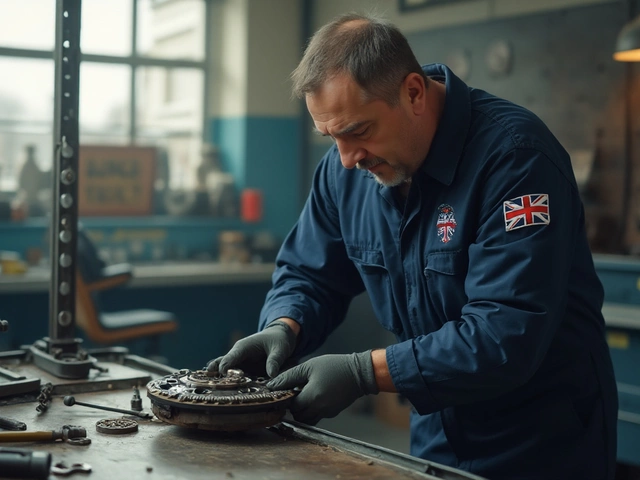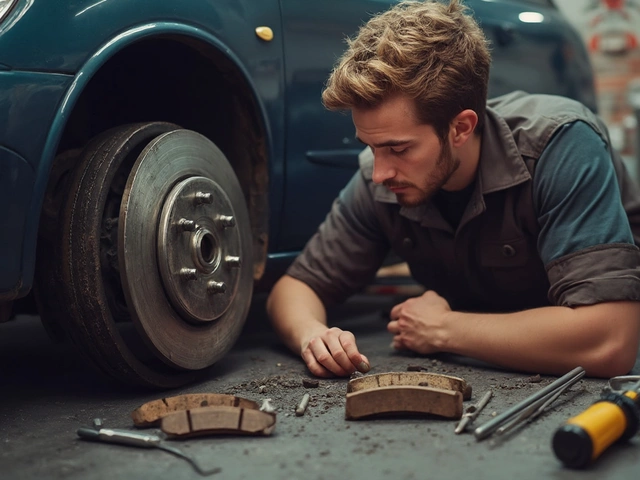Suspension Noises: What They Mean and How to Fix Them
If your car starts making rattles, clunks, or squeaks, it’s probably talking about its suspension. Those sounds aren’t just annoying – they can signal worn parts, alignment issues, or even safety risks. The good news is you don’t need a mechanic every time you hear a noise. By learning the basic clues, you can decide if a DIY fix will do or if it’s time to visit a pro.
Common Sounds and Their Causes
Rattling when you hit a bump usually points to loose bolts or worn bushings. Check the shock absorbers and struts; if they’re leaking oil, they’ll let the wheels bounce more than they should. A deep thumping sound while turning often means a bad ball joint or tie‑rod. Squeaking during low‑speed turns is usually a sign of dry or damaged sway bar links. For a quick test, push down on each corner of the car – if one side sags more, that side’s suspension likely needs attention.
When to Get Professional Help
Some problems are easy to tighten up yourself, like snugging loose bolts or adding a dash of grease to bushings. But if you notice uneven tire wear, the car leans to one side, or the steering feels loose, it’s best to book a service. Our post “Can You Drive With Bad Suspension?” breaks down the risks of ignoring these signs, and “How to Spot Bad Suspension Shocks” gives a step‑by‑step checklist for checking shock health. A professional can spot hidden damage, do a proper alignment, and replace worn components safely.
Don’t wait until the noise turns into a wobble. Early fixes keep repair costs low and your ride stable. If you’re comfortable lifting the car with a jack, start by inspecting the shocks, struts, and mounts for cracks or fluid leaks. Look for torn rubber on the mounts – that’s a clear sign they need replacing. Tighten any loose nuts you find, and give the suspension a quick bounce test to see if the feeling improves.Remember, a smooth‑running suspension not only feels better on the road, it also protects your tyres and improves fuel efficiency. Regular checks, especially after hitting a pothole or driving on rough roads, can catch problems before they get expensive. Keep the noise list handy: rattles = loose parts, clunks = joints, squeaks = dry links. Match the sound to the symptom, and you’ll know exactly what to do next.
If you’re still unsure, swing by Northwich Tyres Centre. We can inspect your suspension, replace worn shocks, and give your car a proper alignment. Our team knows how to quiet those annoying noises and get you back on the road safely.
 13 June 2025
13 June 2025
Suspension Noise Types: Three Sounds That Signal Trouble
Weird noises coming from your car’s suspension aren’t just annoying—they’re a big red flag. This article breaks down three specific types of sounds that scream something’s wrong with your suspension. Find out what each noise usually means, how they happen in real-world driving, and get some handy tips to track down the cause before things get worse. Everyday examples make it all crystal clear so you know what to listen for. Save yourself time, stress, and money by catching the early warnings.
Tags
- car maintenance
- engine oil
- spark plugs
- brake pads
- engine performance
- vehicle maintenance
- spark plug replacement
- windshield wipers
- fuel pump
- suspension parts
- clutch replacement
- clutch kit
- car performance
- oil change
- air filters
- car suspension
- car radiator
- exhaust systems
- engine misfire
- fuel pump failure






0